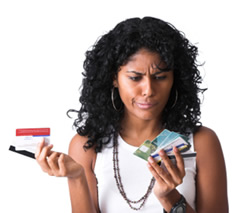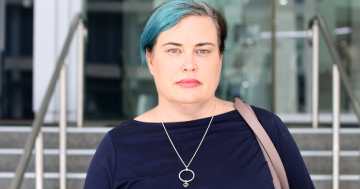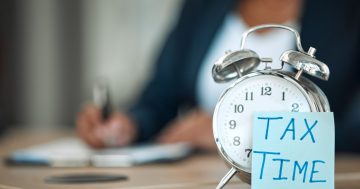Lyle Daly* says in normal times the advice has always been to pay off as much of your credit card debt as possible — but these are not normal times.
 One thing practically every financial expert agrees on is that you shouldn’t pay just the minimum on your credit card.
One thing practically every financial expert agrees on is that you shouldn’t pay just the minimum on your credit card.
You’ll rack up interest charges; it will take you much longer than necessary to pay off your balance, and it could affect your credit score.
The Coronavirus crisis has some people reconsidering that advice.
Financial advisor and television personality, Suze Orman has explicitly recommended that those who have lost their jobs only make minimum credit card payments in order to keep more cash on hand.
It’s certainly important to have enough money to pay your bills in a time of widespread unemployment and economic uncertainty.
However, should you carry a bigger balance on your credit card to preserve cash?
To answer that, let’s look at the reasons for and against it.
The recommendation to make minimum credit card payments and save your cash all boils down to financial security.
It’s safer to have more money in your bank account than to have your credit card paid in full.
This advice is aimed primarily at people who don’t have much in their emergency funds, and could have trouble paying their bills if they lost their income.
You may be wondering what makes cash safer than credit cards in this scenario.
After all, you could conceivably pay expenses with your credit card if money’s tight.
There are even services available, such as Plastiq, that let you use your credit card to pay almost any type of bill, including rent or mortgage payments.
Although that’s true, there is a chance your card issuer could decide to reduce your credit limit, or even cancel your card entirely.
Both can happen, and they’re more likely during an economic downturn.
However, you can always use cash to pay your bills.
You don’t have the same guarantee with credit cards, since your credit limit and the status of your card are under the card issuer’s control.
What are the downsides of paying the minimum?
Since most credit cards have high interest rates, minimum payments come at a cost.
You’ll be paying a premium on monthly interest charges to hang onto more cash.
Even if your card issuer is one of the many offering Coronavirus credit card relief, only a select few are waiving interest charges entirely.
There is one way you can pay the minimum and avoid interest charges, and that’s with a nought per cent Annual Percentage Rate (APR) credit card.
If you can get approved for this type of card, then you can make minimum payments during the naught per cent intro period without paying any interest.
You will start incurring interest charges when that intro period ends, though.
You’d also still be taking on credit card debt — another potential risk of only paying the minimum amount.
Credit card debt tends to get more difficult to pay off the more that your balances grow.
The best way to look at this is to consider your emergency fund.
Do you have enough saved to cover at least six months of living expenses?
If the answer is yes, then you’re in a secure position financially, and it likely isn’t worth paying interest or getting into credit card debt just to save even more cash.
If you don’t have that much put away, then you may want to consider reducing your credit card payments and putting that money toward boosting your emergency fund.
Your employment status also plays a role in this decision. If you have steady income, you might not need to take such drastic measures.
*Lyle Daly is a writer specialising in credit cards, travel rewards programs and banking. He can be contacted at lyledaly.com.
This article first appeared at fool.com










